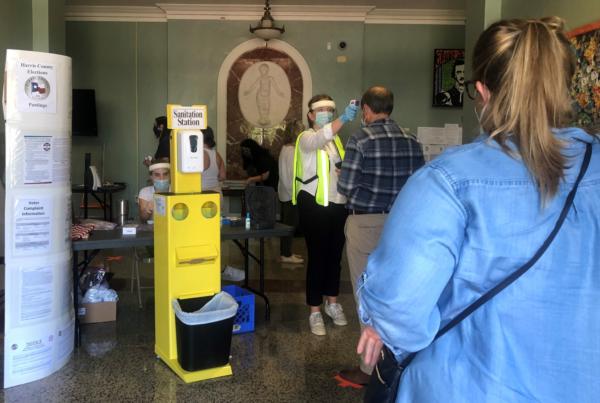The pandemic is wreaking havoc on business large and small in Texas. While doctors have been critical in the fight against COVID-19, many Texas physicians, especially primary care providers, worry their businesses may not survive.
Now, a group of them is calling for a Primary Care Marshall Plan – echoing the name given to the U.S. government’s effort to help Europe recover in the aftermath of World War II.
Tom Banning is CEO of Texas Academy of Family Physicians, or TAFP. He told Texas Standard that primary care practices have seen a drop in patient visits of about 50% to 70% since the beginning of the pandemic.
“Some of those practices were able to pivot to offer telemedicine, or virtual services that helped continue offering services, but it didn’t make up for the loss in volume,” Banning said.
Part of the reason the downturn was so severe was because of the fee-for-service model of payment, by which physicians are paid “more for doing high-cost, low-value services,” Banning said.
That model can be an issue for primary care doctors who often provide more low-cost, high-value services.
“When the volume fell off 70%, it just exposed that problem that we’ve been dealing with, frankly for a long time now,” he said.
The plan TAFP advocates reconsiders fee for service in favor of other payment systems like bundled payments, prospective payment or primary care capitation. Payment capitation allows primary care physicians to be paid based on the number of patients they have, whether or not those patients seek medical services. In return, patients who do receive care only pay for clinical services, which could lead to lower patient bills and a stable source of income for doctors.
Banning said the challenges primary care doctors face, especially since the pandemic, could lead to consolidation – in other words, them leaving smaller practices to join larger ones. And those large group practices will likely attract investment from private equity firms. Banning said small practices can survive only if there are major changes to the health care system.















